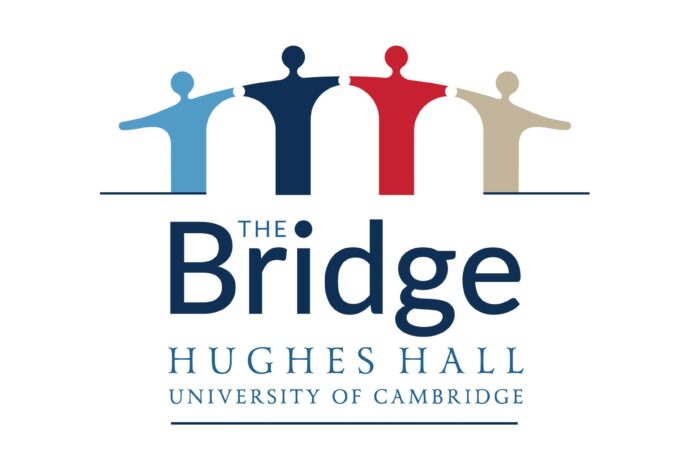Bridging academic, policy and professional worlds
Hughes Hall hosts a number of Bridge Centres, presently including Cambridge Digital Innovation, Oracy Cambridge, the Centre for Climate Engagement, and the Digital Education Futures Initiative, that function as focus points for the wider development and application of a number of special research activities and projects.
The Centre for Climate Engagement (CCE) was established to increase awareness on the boards of private companies and to inform them of the need for urgent action. Climate change has not been given the priority it deserves on many boards, despite the potential for businesses to contribute in an important way through emissions reduction and by taking advantage of the opportunities presented by the transition to a net-zero and climate resilient future. At the same time, it will be involved with academic research into the use of law and regulation as levers to increase corporate climate ambition, and with other relevant disciplines such as economics and marketing.
Cambridge Digital Innovation (CDI) stimulates interaction between industry professionals, policy-makers, academics, students and enthusiasts on the most exciting and impactful phenomena driving the digital revolution. The Centre’s goal is to bring together leaders in innovation, digital technologies, healthcare, and finance from across The University’s different departments and innovation spaces (e.g. incubators, the science park, and accelerators), along with external organisations, primarily those in healthcare and FinTech, and a growing global network of academic partners, based at MIT Sloan, INCAE, NYU, Stanford and other universities worldwide. A key focus of CDI as a Knowledge Hub is help develop and translate knowledge from academia into practice and policy. Our activity is therefore expected to be relevant to a large number of organisations in the for profit and not for profit sectors, across developed and developing economies.
The Digital Education Futures Initiative (DEFI) works with partners in industry, policy and practice to explore the field of possibilities that digital technology opens up for education. It is both a Centre for this kind of close-to-practice research and also an initiative to create a new Institute at Cambridge to serve as a global hub and thought-leader in this area. ARM computing and EPIC Games have provided some initial enabling support. While DEFI would never be an uncritical advocate for the use of more education technology it does want to serve as a catalyst for innovation and development. DEFI maps the educational logic of the new Internet Age through research that explores the pedagogical affordances of new technologies, which means the ways of teaching and learning that they make possible for education, ways which were either not possible or more difficult to implement before. While some of these affordances have long been noted in the literature, not enough effort has yet been put into research into how they might or might not transform education in the future. Design-based research implements these affordances in working models of education into order to investigate their consequences.
Oracy Cambridge is concerned with the effective use of talk in all aspects of professional and social life. Its aims are to: (a) raise awareness of the importance of effective spoken communication in society, and ways that it can be developed through education and work-related training, amongst policy makers and practitioners within the UK and internationally; (b) disseminate relevant research that can inform policy and practice; (c) host events that bring together those concerned with developing effective spoken communication in educational settings, workplaces and communities; and (d) build links between members of different professional communities concerned with the study and use of spoken communication.


